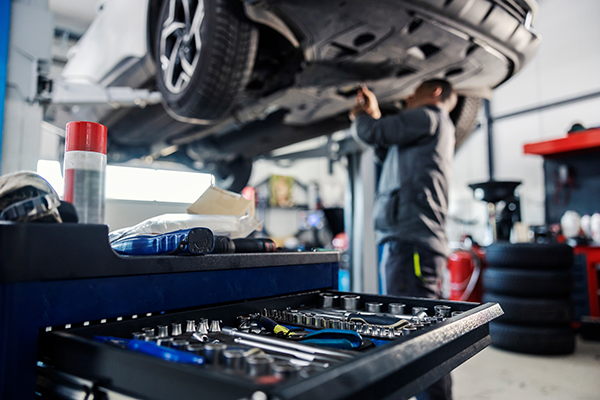
Have you ever experienced a strange noise when starting your car? It's common for vehicle owners to encounter unexpected sounds emanating from their vehicles, especially during ignition. While some noises may be harmless, others could indicate underlying issues that require attention.
The Mystery Behind Strange Car Noises
Cars are complex machines with numerous moving parts, and sometimes, these parts can produce unusual sounds, leaving drivers puzzled. When you turn the key or press the start button, your car's engine undergoes a series of processes to ignite and begin running. However, if you notice any abnormal noises during this process, it's essential to investigate the cause to prevent potential damage.
Possible Reasons for Weird Noises During Startup
Starter Motor Issues
A malfunctioning starter motor is a common culprit behind strange noises when starting your car. The starter motor initiates the engine's rotation, allowing it to start. If the starter motor is worn out or has damaged components, it may produce grinding, clicking, or whirring noises when activated.
Low Battery Voltage
Another possible cause of strange noises during startup is a low battery voltage. When the battery doesn't have sufficient power to crank the engine effectively, you may hear rapid clicking or stuttering sounds as the starter attempts to engage. This could indicate a weak battery, corroded terminals, or a faulty alternator unable to recharge the battery adequately.
Engine Belt Issues
A worn or damaged engine belt can also contribute to unusual noises during startup. The engine belt, also known as the serpentine belt, drives various components such as the alternator, power steering pump, and air conditioning compressor. If the belt is loose, cracked, or misaligned, it may produce squealing, rattling, or chirping sounds when the engine is started.
Preventive Maintenance Tips to Avoid Engine Problems
Regular Battery Inspection
Ensure your vehicle's battery is in good condition by periodically inspecting it for signs of corrosion, leaks, or damage. Clean the battery terminals and connections to prevent voltage drops and ensure optimal electrical performance.
Scheduled Belt Replacement
Follow the manufacturer's recommended maintenance schedule for inspecting and replacing engine belts. Replace worn or damaged belts promptly to prevent unexpected failures and potential engine damage.
Starter Motor Maintenance
Keep the starter motor and associated components clean and lubricated to prevent premature wear and ensure reliable operation. If you notice any unusual noises or difficulty starting the engine, have the starter motor inspected by a qualified technician.
Fuel System Maintenance
Use high-quality fuel and regularly replace the fuel filter according to the manufacturer's recommendations to maintain proper fuel system hygiene. A clean fuel system promotes efficient engine performance and reduces the risk of fuel-related issues.
Professional Inspection
Schedule periodic inspections with a qualified mechanic to detect and address any potential issues before they escalate. A trained technician can identify emerging problems and perform preventive maintenance to keep your engine running smoothly.
Questions You Might Have (Q&A)
Why does a low battery voltage cause rapid clicking sounds during startup?
Low battery voltage prevents the starter motor from cranking the engine effectively, resulting in repeated engagement attempts.
How can regular maintenance of engine belts prevent unusual startup noises?
Regular inspection and replacement of worn or damaged engine belts ensure proper tension and alignment, reducing the risk of noise-causing issues.
What steps can be taken to extend the lifespan of the starter motor?
Keeping the starter motor and associated components clean and well-lubricated, as well as addressing any abnormal noises promptly, can help prolong its lifespan.
Are you hearing any of the unfamiliar noises we talked about? Don’t worry—visit Premier West Gears! Our team will take care of all your maintenance and repair needs.